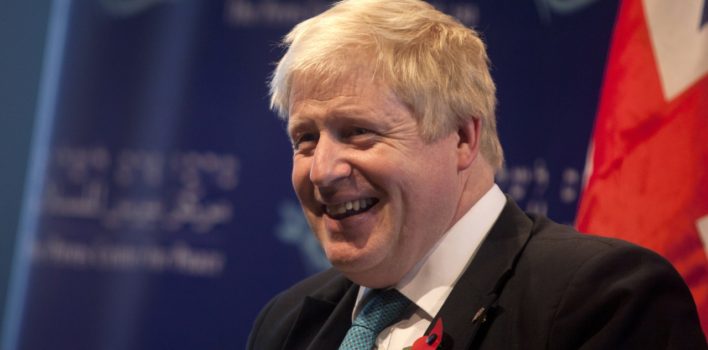London Mayoral Election: Boris’ Manifesto, Four Years On (Part 1)

Tom Buxton investigates whether London’s ex-mayor fulfilled his electoral pledges and how his actions affected Islington…
Few documents enable the public to hold their leaders to account more than the electoral manifestos which secured their victories in the first place.
Usually packed to the brim with PR jingo and terminology ambiguous enough to offer a get-out clause if and when they have to renege upon some of their pledges, these widely available brochures are nevertheless crucial – to the candidate and their electorate alike – in terms of their detailing key promises which the candidate aims to fulfil during their term.
Indeed, Zac Goldsmith, Sadiq Khan and the other ten hopefuls who have cast their hats into the ring for this year’s Mayor of London election will surely have learnt for themselves the influence their recently-published mini manifestos – which can be read here – can have, with publications like The Telegraph already assessing the feasibility of Goldsmith and Khan’s pledges to stem their city’s housing crisis and reporters such as our own Katarina Poensgen taking the candidates to task on other promises surrounding transport and security.
Yet what of the manifesto of the soon-to-be ex-Mayor of London, Boris Johnson, which was published as part of his campaign for a second term in office back in the spring of 2012? How true has the pro-Brexit politician been to his much-vaunted nine point plan for London, and how have his actions affected the citizens of Islington, the area which he has called home since spending upwards of £2million on a local property in 2009?
To find out, we’ll be returning to the original nine pledges Mr. Johnson, 51, made in his 2012 manifesto – as listed by BBC News – so as to discover how many of them have been fulfilled and how they have impacted the borough, starting today with the first four pledges:
Point 1: Cutting waste at City Hall – freeing up £3.5 billion for services.
It’s no secret that Johnson has had his issues with City Hall and the Assembly who occupy the venue in recent years, branding its members as “great supine protoplasmic invertebrate jellies” after disagreeing with them on council tax cuts in 2013, then telling a representative of the Assembly to “stick it” on Mayor’s Question Time last year.

At the same time, the London Assembly remains very much intact and for the most part unchanged four years on from the Mayor’s pledge of “cutting waste and bureaucracy at City Hall” (pictured left) during his second term, with some of the only noteworthy changes being the introduction of a 10p sugar tax at the Hall’s cafes and the decision not to prevent senior staff in the building from arguing against his views on the upcoming EU referendum.
Indeed, current mayoral election candidates still seem to believe there is still work to do yet. UKIP’s Peter Whittle, for instance, told Croydon Advertiser: “Just under a million pounds could be saved by scrapping unelected deputy mayors. [The Assembly]’s got to be streamlined.”
Point 2: Cutting the mayoral share of council tax by 10 per cent.
According to the Mayor of London and London Assembly’s official website, Johnson’s share of the council tax paid by Islington residents – also known as the Greater London Authority Group (GLA) precept – has changed from £309.82 per annum in 2012-13 to a projected £276 for 2016-17, thus marking a 10.9 per cent decrease for Band D households since Boris reigned victorious once again in 2012.
This isn’t to say that the tax rate situation has improved across the board, though; in February, the Islington Gazette revealed that the borough’s council tax would be increasing by 2 per cent in order to “help tackle youth crime” – more on which in tomorrow’s second part – with Mayor and Labour Party member Cllr Richard Greening blaming the announcement on “an era of unprecedented financial pressure from central government” and the Tories’ “savage cuts”.
Points 3 and 8: Creating 200,000 new jobs over four years – including 10,000 from a “true Olympic legacy” – and 11,000 new homes.
This remained an issue which Johnson fought intensely on until his very last Mayor’s Question Time in March, just before which he announced plans – as reported by City A.M. – to create 60,000 jobs and 24,000 homes by “transform[ing] further parts of the [Royal] Docks and adjoining Beckton Riverside to become a world-class business destination”.

Based on figures collated by Statista, it would appear that the Mayor has at least reduced unemployment in the term of office featuring the London 2012 Olympics, since 9.2 per cent of Londoners were unemployed in October 2011 – September 2012 compared to 6.4 per cent in October 2014 – last September, while the Crossrail website reported in 2013 that Johnson’s ambitious railway initiative created over 5,000 jobs in the nation’s capital during his first year in office since re-election alone.
That said, the £600,000 revealed last month in Johnson’s tax returns to comprise his 2014/15 salary might not have sat so well with those Islington residents who are currently struggling with the borough’s lofty house prices. Perhaps they may therefore listen to Labour candidate Sadiq Khan (pictured right) instead, who recently argued that Islington Council “needs a mayor on its side”, proposing “genuinely affordable homes” for locals under his London Plan.
Be sure to join us tomorrow as we examine how Johnson’s efforts to invest in local commerce, police forces and more have come to influence life in Islington. Until then, leave your thoughts in the comments below, on Facebook or on Twitter!




